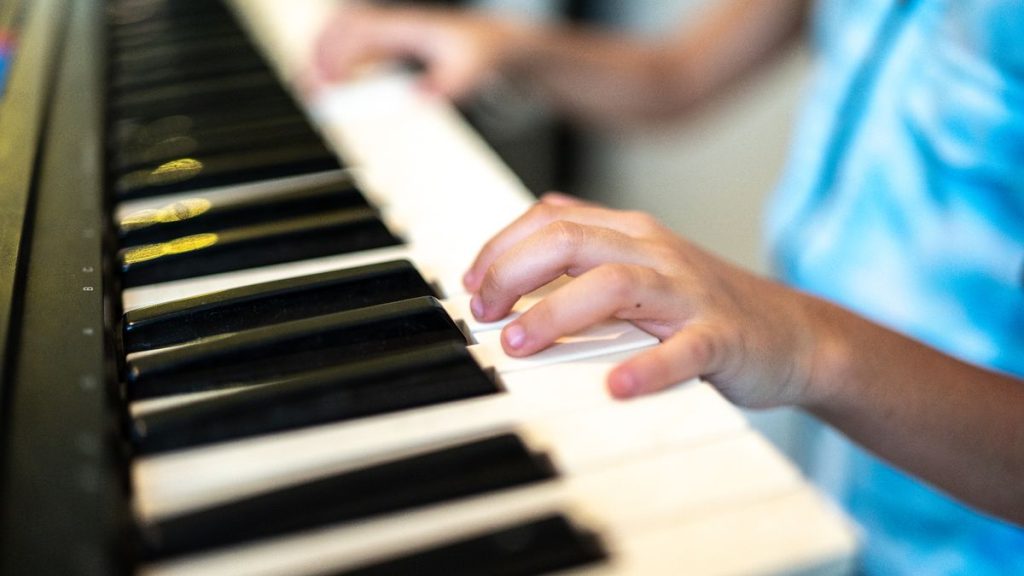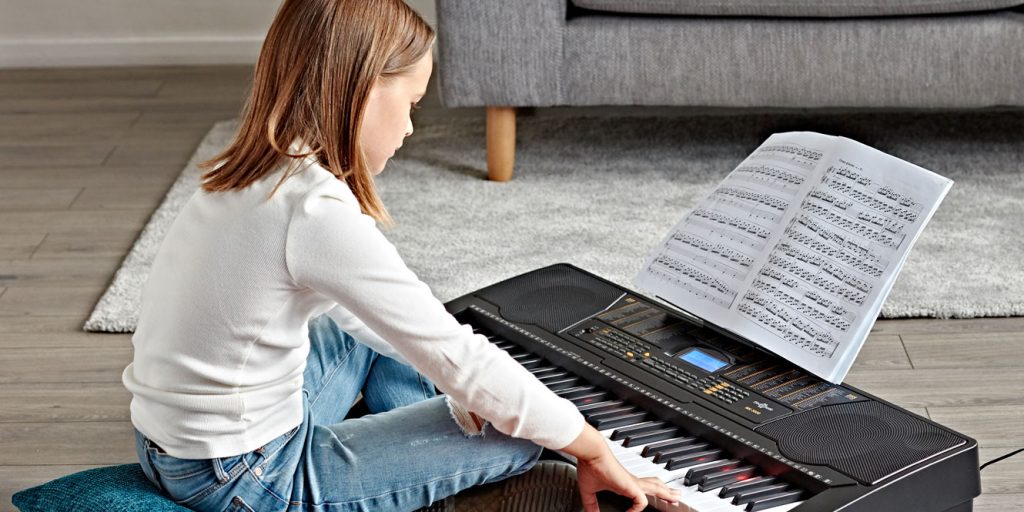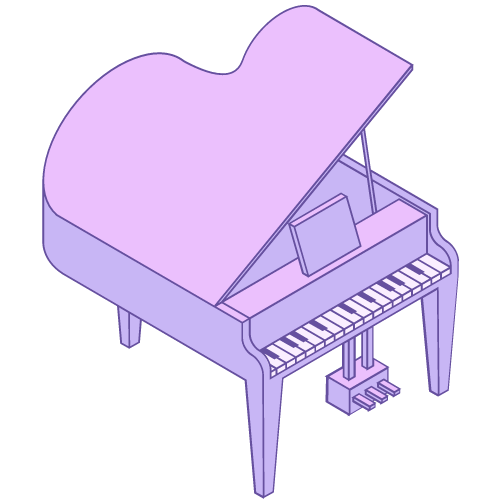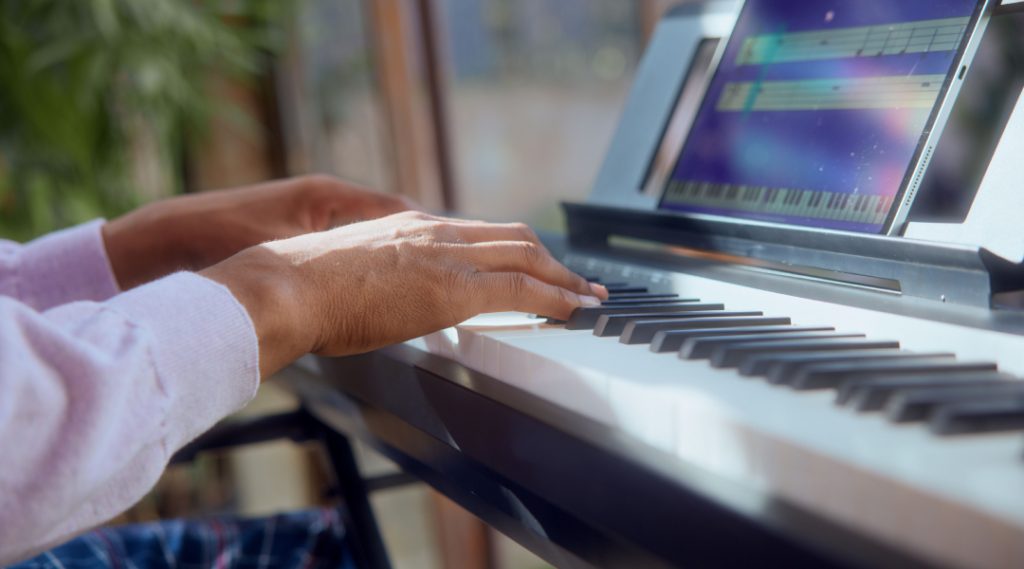Blog
How to Find the Perfect Keyboard for Piano Practice
When it comes to learning the piano or enhancing your practice routine, choosing the right keyboard is essential. A good quality keyboard can offer a variety of features that simulate the feel of a traditional piano, making it an invaluable tool for both beginners and advanced players. But with so many options available, how do you know which one is best for your needs? Whether you’re looking for a digital piano, a compact keyboard, or something more advanced, here are key factors to consider when selecting the perfect keyboard for your piano practice.
1. Understand Your Skill Level and Goals
Before diving into the world of keyboards, it’s important to determine your skill level and specific goals. If you’re just starting out, a beginner-friendly keyboard with a basic range of features might be ideal. On the other hand, if you’re more advanced and looking for something that closely mimics a traditional piano, a digital piano with weighted keys and high-quality sound might be more suitable. Consider these factors:

- Beginner: Basic keyboards with 61 or 76 keys, without weighted keys, are often sufficient.
- Intermediate/Advanced: A full-size keyboard with 88 keys and weighted action (to mimic a traditional piano feel) is recommended for serious practice.
2. Key Action: Weighted vs. Non-Weighted Keys
One of the most important features to consider when buying a keyboard for piano practice is the key action. Key action refers to how the keys feel when you press them. There are two main types of key action:
- Weighted Keys: These simulate the resistance of acoustic piano keys. They provide a more realistic playing experience, making them ideal for serious pianists and those who plan to transition to an acoustic piano.
- Non-Weighted Keys: These are lighter and easier to press, often found on beginner keyboards. They’re great for beginners who want to practice basic notes and chords but may not offer the level of control needed for advanced techniques.
If you’re aiming to develop proper finger strength and technique, weighted keys are highly recommended.
3. The Number of Keys
When choosing a keyboard, the number of keys can make a significant difference in your practice experience. Keyboards come in various sizes, and selecting the right one depends on the style of music you intend to play and your skill level.
- 61 Keys: This is the most common size for beginner keyboards. It’s compact, affordable, and suitable for basic music learning.
- 76 Keys: Offers more range and flexibility for intermediate players, but still compact enough for limited spaces.
- 88 Keys: This is the full-size layout found on most digital pianos, matching the range of a traditional acoustic piano. If you’re serious about developing piano skills, especially if you plan on learning classical music or performing, an 88-key keyboard is highly recommended.
4. Sound Quality and Features
Sound quality is one of the primary aspects to consider when selecting a keyboard. Look for a keyboard that offers high-quality sound samples, especially if you want to create an immersive practice experience. Many modern digital keyboards feature built-in speakers that offer rich, realistic piano sounds, while others allow you to connect external speakers or headphones for enhanced sound.
Other features to look for include:
- Variety of voices: Many digital keyboards offer a range of instrument sounds (e.g., electric pianos, organs, strings). This adds versatility if you want to explore different genres.
- Reverb and effects: Some keyboards include effects like reverb or chorus, allowing you to customize your sound.
- Polyphony: This refers to how many notes a keyboard can play simultaneously. A higher polyphony count is ideal for playing complex music that requires multiple notes at once.
5. Portability vs. Stability
If you need a keyboard that can be easily transported, such as for practice sessions or performances outside the home, portability will be an important factor. Lightweight, compact keyboards are generally easier to carry but may not offer the same feel and features as larger, more stable models.

For at-home practice, a more stable, weighted keyboard or digital piano is typically more comfortable and closer to the feel of an acoustic piano.
6. Connectivity Options
Modern keyboards offer a range of connectivity options that can enhance your practice and learning experience. Look for keyboards that offer the following:
- USB or MIDI connectivity: Allows you to connect the keyboard to music software or apps on your computer or tablet. This is especially useful for those who want to record or use virtual instruments.
- Headphone jack: Essential for practicing without disturbing others.
- Pedal input: If you’re looking for a more realistic piano experience, having an input for a sustain pedal is key. Some keyboards come with basic pedals, but you may want to purchase a higher-quality pedal separately.
7. Budget Considerations
When selecting a keyboard for piano practice, budget plays a big role. Keyboards can range from inexpensive models suitable for beginners to high-end digital pianos designed for professional use. Here’s a basic breakdown of what you can expect at different price points:
- Under $200: These are typically beginner keyboards with basic features like 61 non-weighted keys, limited sound options, and minimal customization.
- $200 to $500: This range includes more advanced keyboards with weighted keys, better sound quality, and additional features like more voices and effects.
- $500 and above: High-end digital pianos and premium keyboards with 88 weighted keys, superior sound engines, and more advanced connectivity options.
Consider how much you’re willing to spend based on your needs and how serious you are about learning or practicing piano.
8. Recommended Keyboards for Piano Practice
Here are a few top-rated keyboards for different budgets and needs:
For Beginners
- Yamaha P-45 (Digital Piano, 88 keys, weighted keys): Offers an authentic piano experience with great sound quality at an affordable price.
- Casio Privia PX-160 (Digital Piano, 88 keys, weighted keys): A great budget-friendly option with a slim profile and high-quality sound engine.
For Intermediate Players
- Roland FP-30 (Digital Piano, 88 keys, weighted keys): Features high-quality sounds and a responsive action, perfect for players looking to upgrade from entry-level models.
- Kawai ES110 (Digital Piano, 88 keys, weighted keys): Known for its excellent touch and sound, making it a great choice for players who want to continue improving their skills.
For Professional Players
- Yamaha Arius YDP-144 (Digital Piano, 88 keys, weighted keys): A traditional-style digital piano with excellent sound and feel, perfect for serious pianists.
- Roland RD-2000 (Stage Piano, 88 keys, weighted keys): A top-of-the-line digital piano with advanced features, ideal for performing musicians.
Conclusion: Finding the Right Keyboard for Your Piano Practice
Choosing the perfect keyboard for piano practice ultimately depends on your individual needs and preferences. If you’re just starting, a basic keyboard with fewer keys and non-weighted action may be ideal. However, if you’re serious about learning and plan to transition to an acoustic piano, it’s worth investing in a high-quality digital piano with weighted keys and a full 88-key range.
Consider your skill level, the sound quality, and any additional features you may need, such as connectivity options and portability. With the right keyboard, you’ll be able to practice effectively and enjoyably, helping you reach your piano goals faster. Happy playing!


